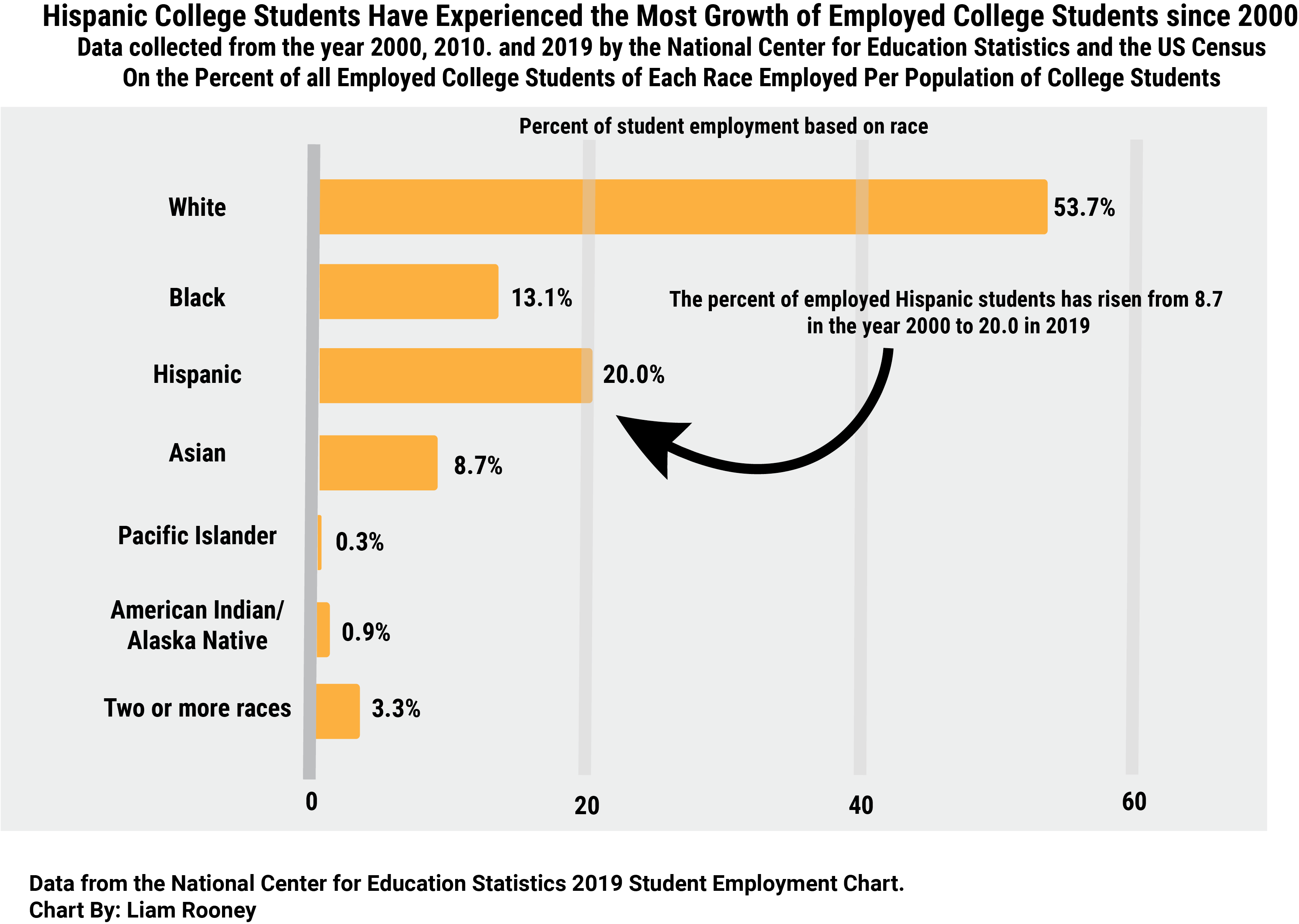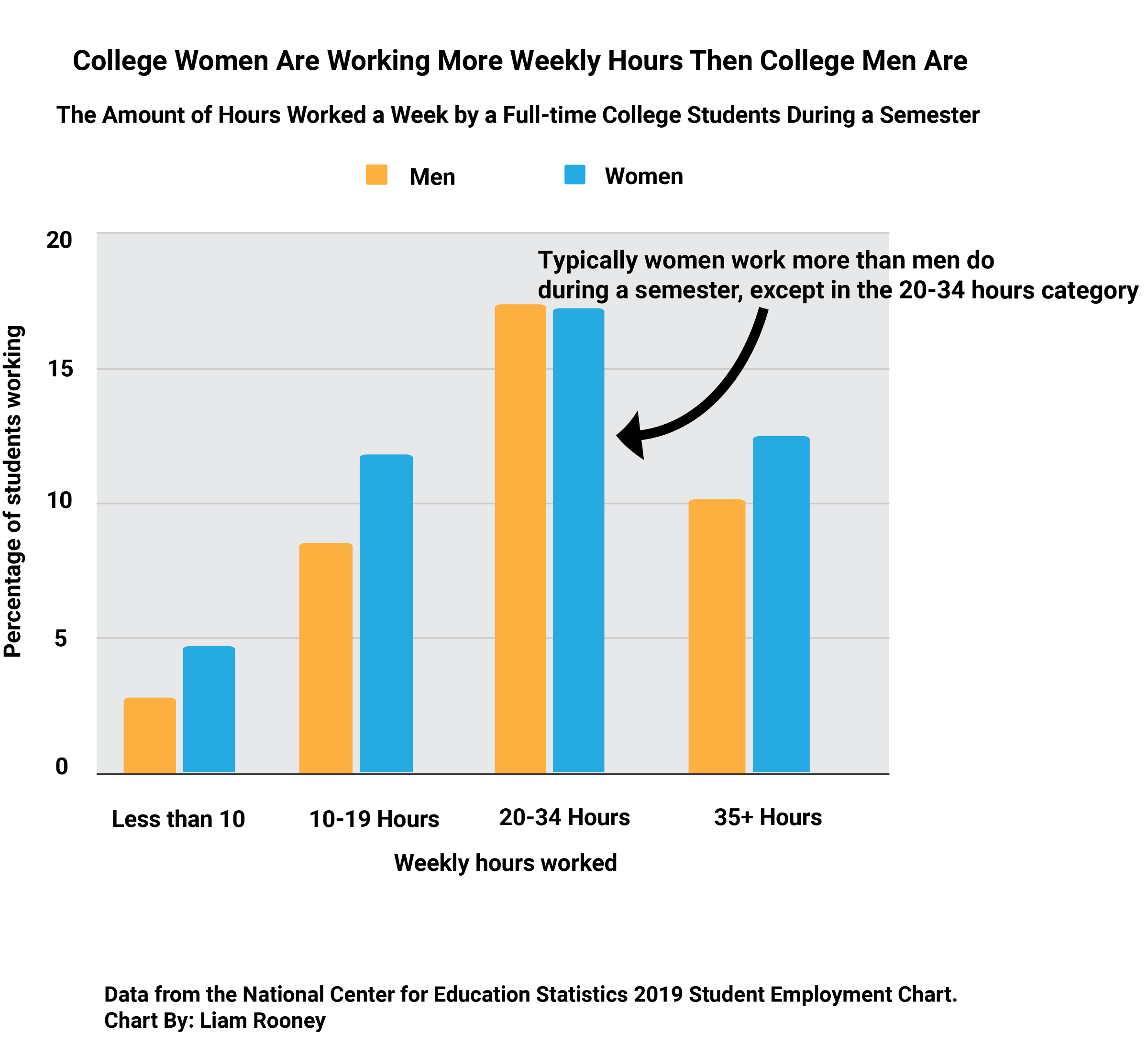Being a college student can be a rewarding and fun experience, but for many students, the cost of tuition requires them to work while also enrolled. But working in college can be difficult for students trying to balance study, social life and work.
According to the National Center for Education Statistics, just over 75% of working students attend four-year institutions, whereas those attending two-year institutions account for just under 25%. A possible reason for the disparity is the enrollment total. In research done by Educationdata.org, 71.1% of college students are enrolled in four-year institutions, while 28.9% attend two-year institutions.
There are many reasons why someone might work in college. It could be to help pay for tuition, rent or save money. Take Florida International University’s Soren Knippen student. The junior started working two part-time jobs this year, one as a tutor at an elementary school and the other as a photographer. This helps him pay for his apartment and camera equipment. “It’s difficult because I feel like sometimes, I have to choose something to sacrifice, and more often than not I have to sacrifice my social life to make sure my job and school work get done,” Knippen said.

He works 25–35 hours a week, depending on whether he has to do a photo shoot. These hours are the most common for college students according to the National Center for Education Statistics, as 34.6% of full-time students work 20–35 hours a week. Knippen is Puerto Rican and an example of Hispanic students who have increasingly begun employment while in college. Since 2000, the percentage of employed Hispanic students has increased from 8.7% to 20%. Contributing to this growth is the increase of Hispanics in college; since 2000 Hispanic enrollment has ballooned from 27.1% to 36.3%.
Women on average work more than men while in college. Amanda Vuelta attends FIU and has a part-time job at the university. Females account for 54.6% of employed college students in the United States, and Vuelta said she has been working since she enrolled in the university to help pay for school and life after graduation. Like Knippen, Vuelta is Hispanic and is part of a growing number of employed Hispanic students.

She has a job with the university’s intramural sports programs. Vuelta said that a benefit of working on campus is that she doesn’t have to stress as much about a commute, and it saves her money with gas. However, she said she still feels like it can be a bit overwhelming sometimes.
“Working with all the classes I take requires a careful balance, and sometimes it can be a bit much,” Vuelta said.
Both Knippen and Vuelta have the common experience of feeling overwhelmed by school and a jobs. The cost of living hangs over the heads of many college students, and some are struggling to balance living on their own, going to school, and trying to maintain relationships with those close to them. Finding the balance and time to take care of themselves is key for students like Knippen, Vuelta and many more around South Florida.
































